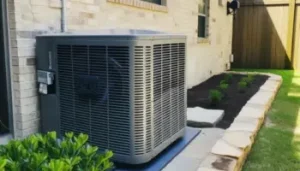Geothermal HVAC systems have emerged as a leading choice in the quest for more sustainable and energy-efficient home heating and cooling solutions. Leveraging the Earth’s natural heat, these systems offer a range of environmental and economic benefits, making them a compelling option for homeowners seeking to reduce their carbon footprint and lower energy costs. This blog introduces the concept of geothermal HVAC systems, explains how they work, and highlights their benefits and considerations for installation.
What is Geothermal Heating and Cooling?
Geothermal heating and cooling systems utilize the Earth’s natural temperature to provide heating and cooling for homes. Unlike conventional HVAC systems, which rely on burning fossil fuels or using electricity to generate heat or cool air, geothermal systems transfer heat between the Earth and your home. This process takes advantage of the relatively stable temperature of the ground beneath the Earth’s surface, which remains constant throughout the year.
How Geothermal HVAC Systems Work
Geothermal systems consist of three main components: the ground loop, the heat pump, and the distribution system.
Ground Loop
The ground loop is a series of underground pipes in either horizontal trenches or vertical wells. These pipes circulate a heat-transfer fluid through the ground, typically a mixture of water and antifreeze.
Heat Pump
The heat pump is the heart of the geothermal system. It extracts heat from the ground loop and transfers it to the home during the winter. In the summer, the process is reversed: the heat pump removes heat from the home and transfers it back into the ground, providing cooling. But if the heat pump service is not done on time, it will not work on full efficiency
Distribution System
The distribution system consists of ductwork (for central air systems) or hydronic radiant floor systems that distribute the conditioned air or heat throughout your home.
Benefits of Geothermal Heating and Cooling
1. Environmental Benefits
Sustainable Energy Source: Geothermal systems use the Earth’s natural heat, which is a renewable and abundant resource. This reduces reliance on fossil fuels and decreases greenhouse gas emissions.
Lower Carbon Footprint: By using a renewable energy source and reducing energy consumption, geothermal systems contribute to a smaller carbon footprint compared to traditional HVAC systems.
Reduced Air Pollution: Geothermal systems do not produce air pollutants, such as sulfur dioxide and nitrogen oxides, which are commonly associated with burning fossil fuels.
2. Economic Benefits
Lower Operating Costs: Geothermal systems are highly efficient, with the potential to reduce heating and cooling costs by up to 50% compared to conventional systems. This is because they transfer heat rather than generate it, resulting in significant energy savings.
Long-Term Savings: While the initial installation cost of a geothermal system can be higher than traditional HVAC systems, the long-term savings on energy bills can offset this expense. Geothermal systems typically have a lifespan of 20-25 years for the heat pump and 50+ years for the ground loop, providing substantial returns on investment.
Increased Property Value: Homes equipped with geothermal systems may have higher resale values due to their energy efficiency and environmentally friendly features. Potential buyers often view these systems as desirable upgrades.
3. Comfort and Efficiency
Consistent Temperature Control: Geothermal systems provide stable and consistent heating and cooling, as the ground temperature remains relatively constant throughout the year. This results in a more comfortable indoor environment.
Quiet Operation: Geothermal systems operate quietly compared to traditional HVAC systems. The heat pump is located indoors, and the ground loop operates silently, contributing to a more peaceful home environment.
Dehumidification: Geothermal systems effectively remove excess humidity from the air, improving indoor air quality and comfort levels.
Considerations for Installation
1. Initial Costs
Higher Upfront Investment: The initial cost of installing a geothermal system is generally higher than that of traditional HVAC systems. This cost includes the installation of the ground loop, heat pump, and any necessary modifications to your home’s distribution system. However, federal, state, and local incentives or rebates may help offset these costs.
2. Site Suitability
Land Requirements: The feasibility of installing a geothermal system depends on the available land and soil conditions. Horizontal ground loops require ample space, while vertical loops need deep wells. A site assessment by a professional is necessary to determine the best installation option for your property.
3. Installation Time
Complex Installation: The installation process for geothermal systems can be more complex and time-consuming than conventional systems. It involves digging trenches or drilling wells, which may require special equipment and expertise.
4. Maintenance
Regular Maintenance: Geothermal systems generally require less maintenance than traditional HVAC systems, but periodic checks are necessary to ensure optimal performance. Regular maintenance includes checking the heat pump, cleaning or replacing filters, and inspecting the ground loop.
Conclusion
Geothermal heating and cooling systems represent a sustainable and efficient solution for homeowners seeking to reduce their environmental impact and save on energy costs. By harnessing the Earth’s natural heat, these systems offer significant economic and environmental benefits, including lower operating costs, reduced carbon footprint, and increased comfort.
While the initial installation cost and site suitability are important considerations, the long-term savings and advantages make geothermal systems a worthwhile investment. For expert installation and maintenance of geothermal HVAC systems, trust Diamond Heating and Cooling. Our experienced team is dedicated to helping you achieve a more sustainable and comfortable home environment. Contact us today to learn more about how geothermal heating and cooling can benefit you.



